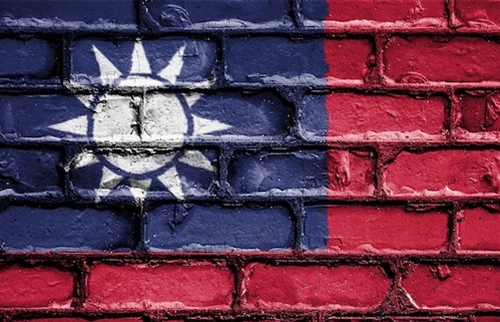
Because Taiwan is a country, not a province of China, it is okay to imply or state outright that Taiwan is a country with a right to exist as a country—the way, for example, Lithuania states this. But China doesn’t want other countries to formally acknowledge these things. So governments eager to appease China go out of their way to avoid such acknowledgement.
And now, according to The EurAsian Times, the United States government, which has long both supported Taiwan and submitted to the mainland’s pretense that Taiwan is not a sovereign country, has made “Another U-Turn As Tensions Simmer Between Taipei & Beijing.”
The US State Department suddenly dropped the word ‘country’ from its travel advisory notice for Taiwan when China’s aggression against Taiwan became the major driver of tensions with the People’s Republic of China (PRC). . . .
When contacted by Taiwan News to comment on the latest development, the spokesperson of the American Institute in Taiwan, considered the de facto embassy in the self-ruled island state, said that US policy on Taiwan remains unchanged without giving more specific details.
The spokesperson stated that the US state department updates its factsheets and webpages frequently, reflecting “longstanding, strong, bipartisan US support for Taiwan, in line with our One-China policy.” The US has been arming Taiwan to bolster its military capability in the face of rising Chinese aggression and intimidation in recent years.
What is a “one-China policy” that entails “strong bipartisan US support” for Taiwan? The Center for Strategic and International Studies explains: “When the United States moved to recognize the People’s Republic of China (PRC) and de-recognize the Republic of China (ROC) in 1979, the United States stated that the government of the People’s Republic of China was ‘the sole legal Government of China.’ Sole, meaning the PRC was and is the only China, with no consideration of the ROC as a separate sovereign entity.”
After further elaboration, CSIS sums up: “The United States doesn’t agree with Beijing’s claim to sovereignty over Taiwan, nor does it agree with Taipei that the ROC is an independent, sovereign state.”
This formal stance, which leads to such panicky gyrations as reported by The EurAsian Times when somebody at State “slips up” and refers to Taiwan as a country, is obviously self-contradictory. The stance could be worse, but it could also be better.





